For many young entrepreneurs looking to launch a new business, their own label or an innovative product, sustainability is more than a mere trend. It’s the heart of their business. In 2022, the share of green start-ups climbed, according to the Green Startup Monitor, and now stands at 35%. Cologne is also seeing an increase in promising start-ups that have made it their business to help the environment and the climate. From climate-friendly wines to bags made of waste materials from the automotive industry: these six start-ups from Cologne are working to make our planet more sustainable.
abgefüllt.
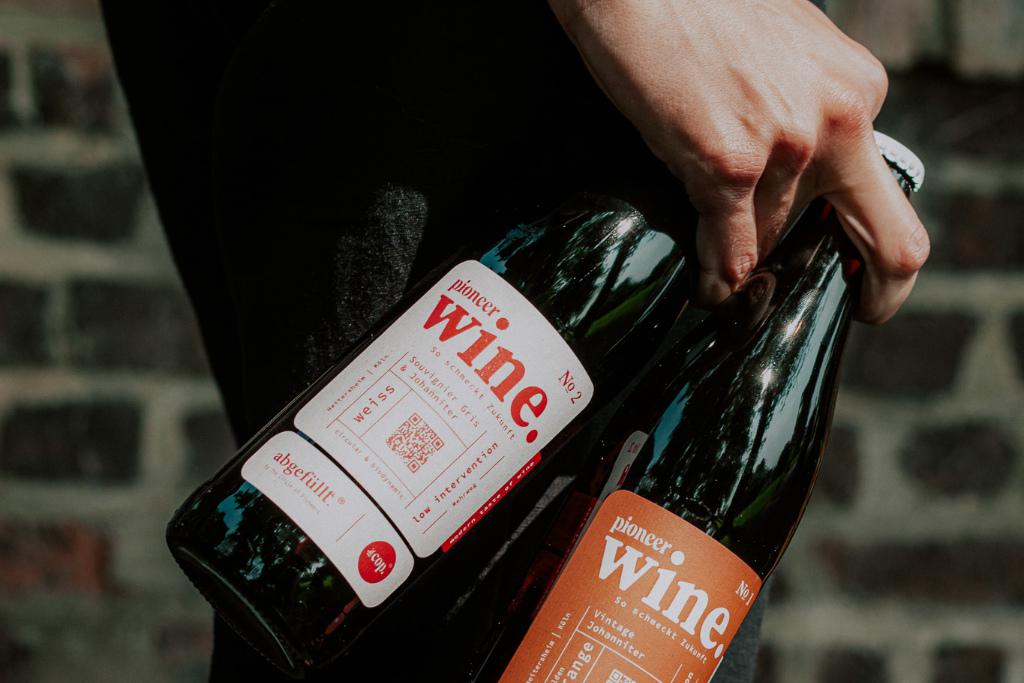
Silja Mende-Kamps’ and Leonie Berents’ abgefüllt. start-up is all about raising consumer awareness and showing people what they can do to help the climate. They started selling their pesticide-free, climate-friendly “Pioneer Wines” last year in their online shop and select bars and food and drink businesses in their home town of Cologne, including Suderman, hurra and the Giovanna coffee shop. The wines are also available at event-based markets like Der Grüne Markt, at Kleiderei and at events staged by sustainable football club Vorwärts SPOHO.
According to the company, abgefüllt. Pioneer Wines, which come in returnable bottles, currently have the best environmental footprint in the wine industry. That’s because abgefüllt. isn’t just about wine. It’s about using wine to promote ethical and environmental issues. “Our work aims to get businesses to step up to their responsibility for climate-related and social goals,” Leonie explains. For the Cologne start-up, that means a large chunk of the business is advising and informing customers as well as partners that have sustainable business models too. In other words, abgefüllt. sells social activism – bottled.
Airpaq
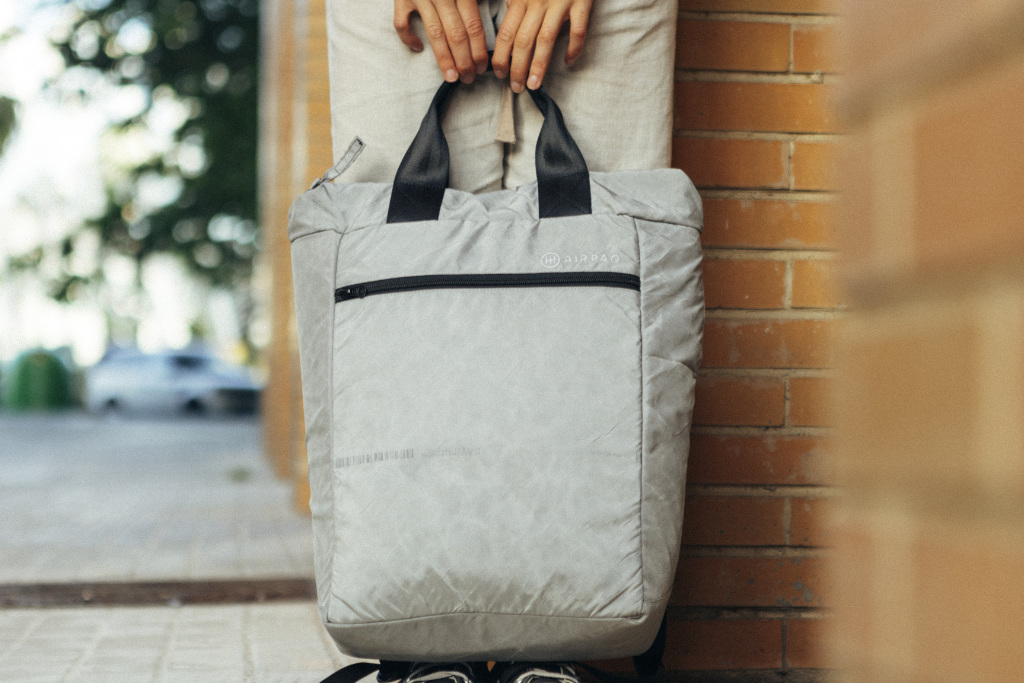
Cologne-based upcycled accessory label Airpaq is a start-up that makes rucksacks out of automotive waste products. They take old airbags, seat belts and buckles and add minimalist design to create rucksacks, hip bags, gym bags and other accessories that are robust, well-made and stylish.
Airpaq was set up in 2017 by Michael Widmann and Adrian Goosses, whose aim was to supply long-lasting, high-quality upcycled products at fair prices. A rucksack costs between 100 and 200 euros in their online shop. “Our top product? Definitely the Rolltop rucksack, made of car parts,” Adrian tells us. And if you want even more individuality, there’s a 3D configurator on the website to customise your rucksack.
feelfood
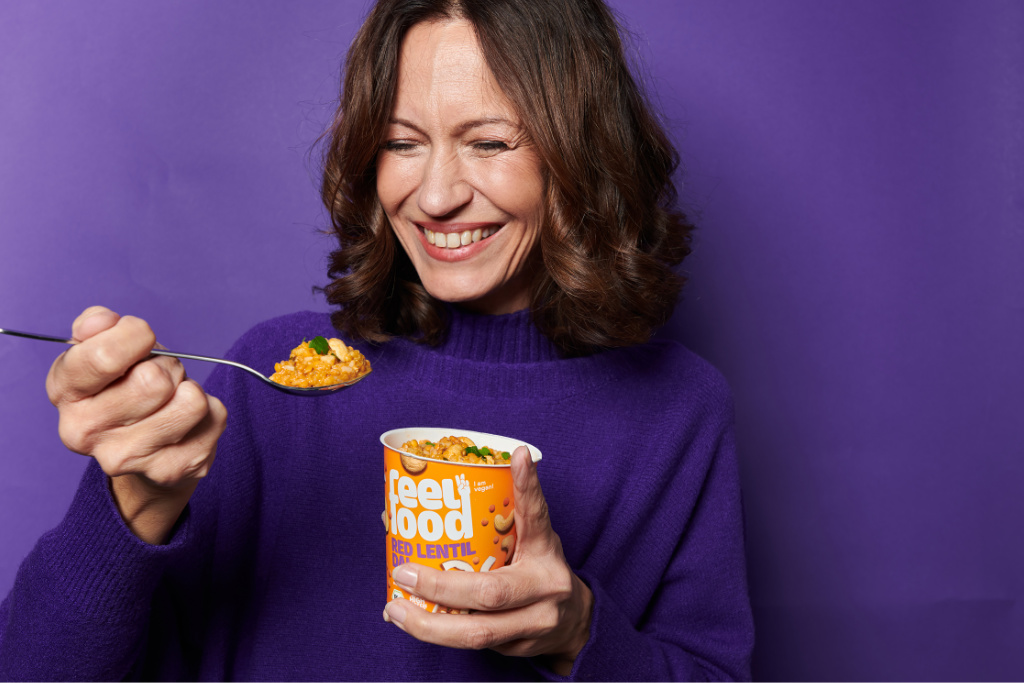
Making sure you eat healthily at work is no easy task. 64% of employees say lack of time is the main reason for their poor diet. In our hectic working lives, the lunch break usually only gives you enough time for fast food from the closest takeaway or a ready-made meal. Fabian Zbinden and Franziska Schaal have a solution to the dilemma: feelfood. Founded in 2020, the Cologne-based start-up aims to offer busy people a fast and flavoursome lunchtime option – in the form of instant products that are organic, vegan and free of preservatives with the added bonus of a homemade taste.
Healthy, natural and ready in just six minutes: feelfood now offer four different lunch dishes. They include yellow Thai curry and red lentil dal though pasta bolo vegan is one of the bestsellers. “That’s probably because it’s a dish everyone knows and loves. And our version is completely plant-based, organic and easy to prepare,” co-founder Franziska explains. People who haven’t got much time in the morning either can go for one of the high-protein breakfast drinks. They taste like porridge, but out of a carton, and they contain important minerals and unsaturated fatty acids too. All of the meals and breakfast drinks can be purchased in the feelfood store and in some of the REWE and EDEKA supermarkets in Cologne.
Naughty Nuts

2019 was probably a dark year for fans of peanut butter. There wasn’t a jar to be found on German supermarket shelves, nor were new deliveries from the US anywhere in sight. But why aren’t there any German peanut butter companies? Benjamin Porten and Lorenz Greiner didn’t know either so they decided to start their own: Naughty Nuts. Set up in 2020, the Cologne-based sustainable business has been conquering the nut-butter market ever since with products that “leave out the nonsense”. There’s no added sugar, palm oil or whey powder and all the ingredients are organic. What’s more, all Naughty Nuts products are 100% vegan.
Apart from standard peanut butter, the range features mouth-watering creations such as salted caramel or cinnamon roll, perfect as toppings on fruit or porridge. But one of the top Naughty Nuts bestsellers is Choco Crush: an intensive hazelnut butter with a natural sweetness thanks to the combination of cocoa and dates.
Vytal
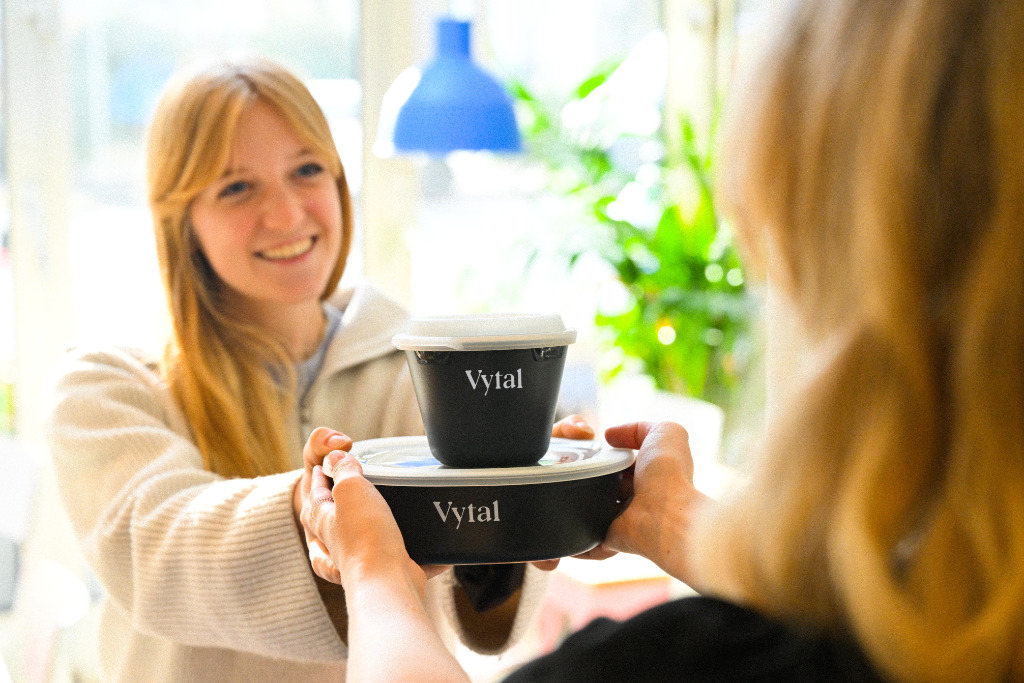
Did you know that every German generates around 1.3 kilos of packaging waste per day? Shocked by this wasteful use of resources, Sven Witthoeft and Tim Breker founded a start-up to counter the problem: Vytal. The idea behind this reusable container system is to avoid the mountain of packaging waste that results from takeaway and home-delivery food. Customers can borrow the Vytal containers free of charge from participating eateries and bring them back when they’ve finished with them. They only have to pay if they miss the deadline – a bit like when you borrow books from a library.
Established in 2019, the Cologne-based start-up now has more than 6,500 restaurants, canteens and food retailers signed up. To use it, all you need is the Vytal app. Once you’ve scanned the container, you can take it away and then return it later. The app also tells customers how much single-use packaging waste they’ve saved.
Hydrofarms
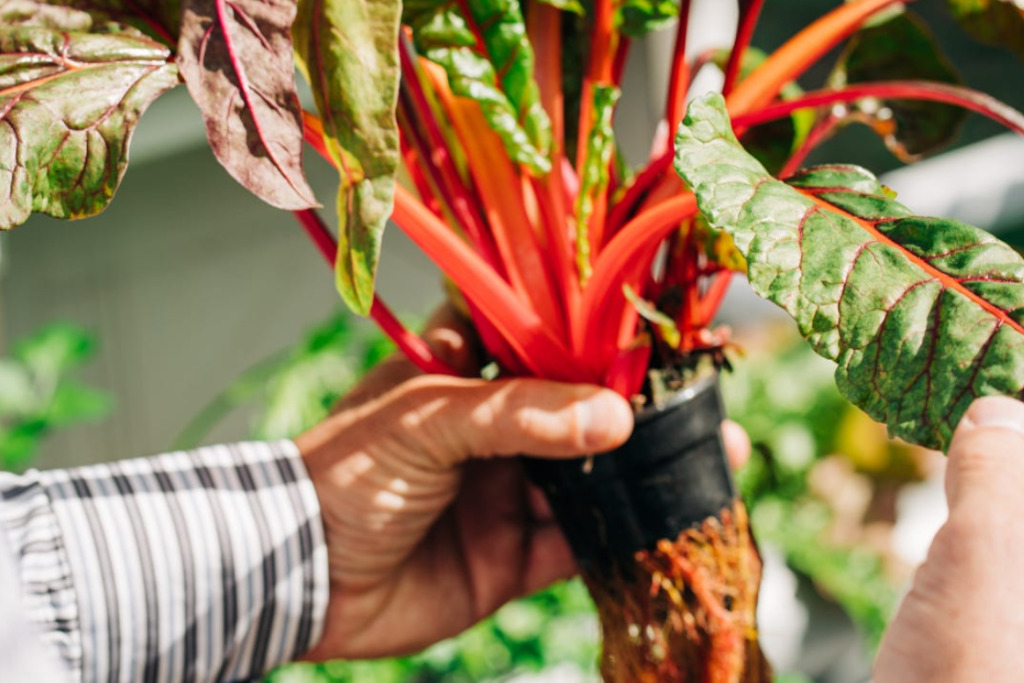
Young start-up Hydrofarms is on a mission to grow fresh lettuce, herbs and other types of vegetable all year round, right in the middle of Cologne. Currently consisting of eight people, the team plans to set up the city’s first vertical farm on a site measuring more than 300m². A hydroponic pipe system will supply the plants with a nutrient solution instead of using soil. That way, they get everything they need and they grow faster. According to the start-up, around seven metric tons of mint, dill and lettuce per month can be produced using the technique.
Hydroponics offers several advantages over traditional vegetable-growing methods. For instance, the rack systems save masses of space. And the plants don’t have to be watered every day, which means that around 90% less water is needed. In addition, the start-up isn’t dependent on weather conditions and can grow regional produce all year round. Hydrofarms’ aim is for the people of Cologne to have access to a constant supply of fresh lettuce and various herbs without having to spend a fortune.
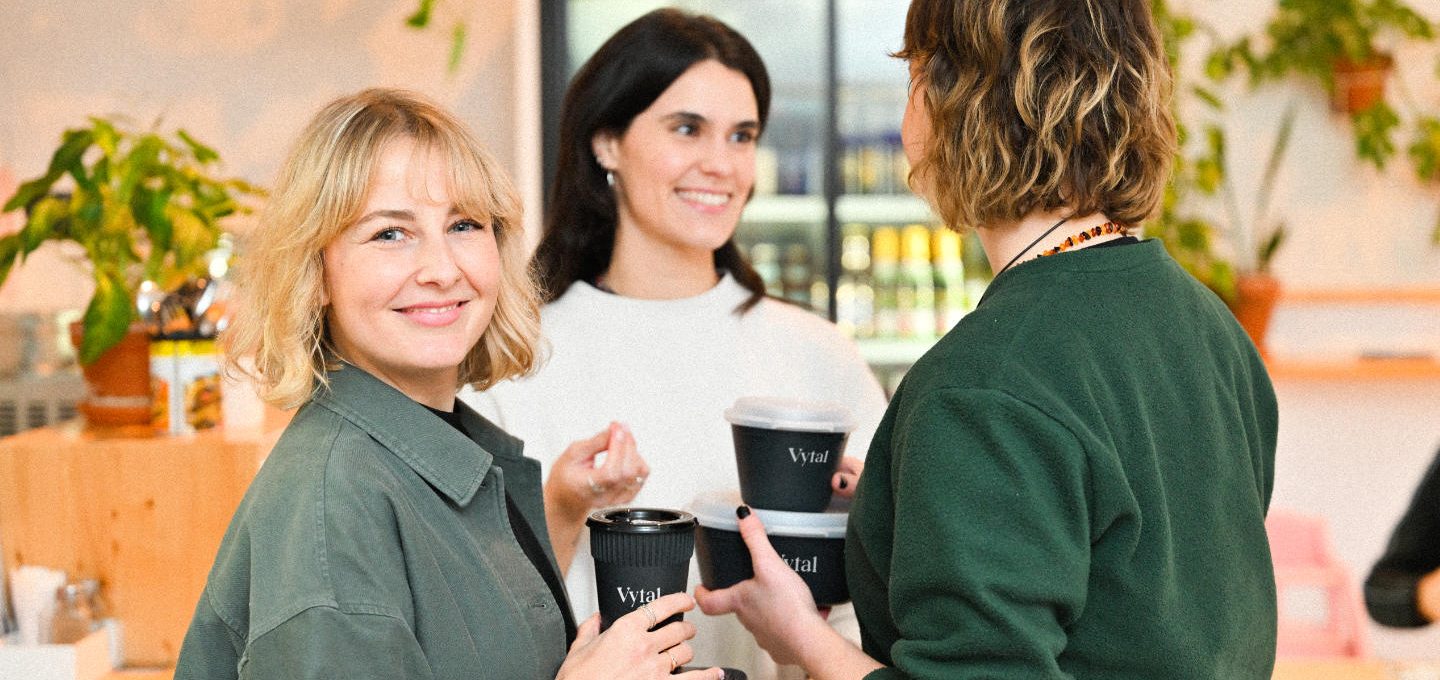
0 comments on “Six sustainable start-ups from Cologne ”